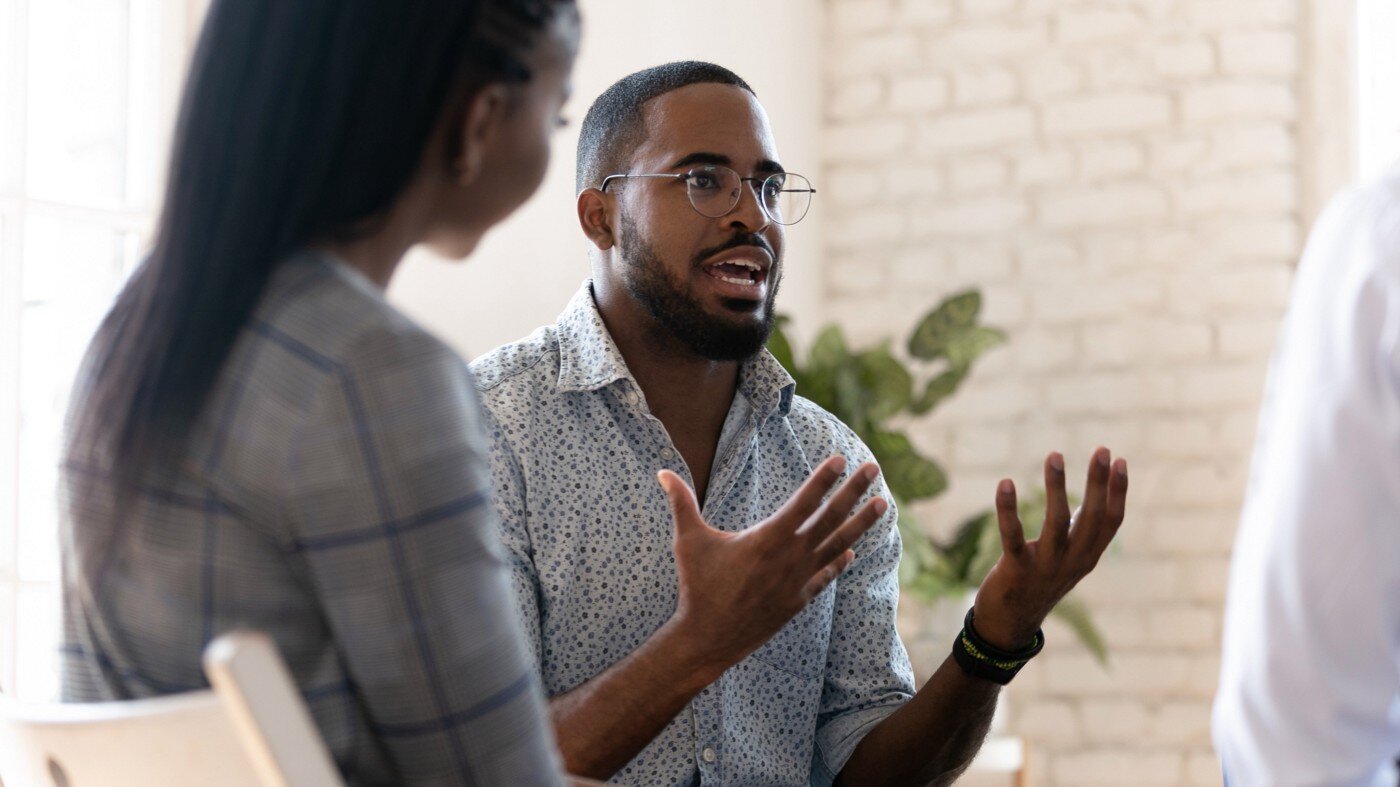“Learn Listening” is the modern-day social superpower.
Image: Shutterstock
I have been on both sides of the social justice conversation since I was a teenager. Through much of my pubescent and young adult years, I was on the side of the table telling my story as a young man of African ancestry. As I reflect on these times, I realize that my main objective was to be authentically listened to by whomever I was speaking to. As I progressed into my career as an educator, coach and public servant…I often sat on the other side of the table, listening to the first voice perspectives of diverse groups of people. I was primarily positioned as the decision-maker in this particular dynamic. As I reflect on these times, I realize that every single voice speaking to me had a main objective in the conversation — to be authentically listened to by those in power. This reflective thought process has brought me to the influential concept of ‘Learn Listening’. Learn Listening is the purposeful, vulnerable, open-minded act of paying close attention to every person who is speaking so that we can learn from them. That’s it. This re-branding of listening may seem small and simple, yet I would suggest that it is the present-day superpower that can facilitate the social change that many marginalized communities are demanding.
Image: Shutterstock
Learn Listening is semantically organized to put learning in front of listening. This is a key re-structuring of what we do as humans. During any given day, we ‘listen’ to spouses, children, colleagues, news anchors, podcasts, songs, and streamed films/TV — all at various levels of attention. My suggestion of Learn Listening as a superpower is to flag the notion that we all must get better at or hone our listening skills to a much deeper level. This is especially pertinent when we are in power positions (as parents, teachers, professionals, public servants, business owners) and are being addressed by humans who are looking for equity and inclusion. Some of the elements of the Learn Listening superpower include:
Not thinking while people are talking to you (especially ‘come-backs’/responses).
Acknowledging body language with empathy.
Focusing intently on what the main point of the communication is?
Not taking the words you are hearing personally.
Honouring the lived experience being communicated as valid and true.
Asking caring, reflective follow-up questions that make the speaker feel heard.
Image: Shutterstock
One of the common barriers to exercising the Learn Listening superpower is ego. Yes, ego. Our perceived sense of self that we often protect during tough conversations. When we perceive the speaker as adversarial or oppositional…we often disregard our listening skills for defensive speaking skills. Our heart rate increases, we have numerous responses exploding in our head and we actually stop listening to the speaker in question. Quite often the defensive stance we take as listeners only serves to make the person we are communicating with feel even more marginalized or distant. I wrote about this in my last blog post. In order for us to power up our Learn Listening ability, we must first ‘empty our cup’ of preconceived notions about the person who is addressing us. There is a zen proverb that speaks to this very idea:
A university professor went to visit a famous Zen master. While the master quietly served tea, the professor talked about Zen. The master poured the visitor’s cup to the brim, and then kept pouring. The professor watched the overflowing cup until he could no longer restrain himself. “It’s full! No more will go in!” the professor blurted. “This is you,” the master replied, “How can I show you Zen unless you first empty your cup.”
Image: Shutterstock
When we Learn Listen, we charge up positive energy that flows between the listener and the speaker. We make people feel good! As I suggested early in this blog, every person/group who had the courage to advocate for something in society (race, gender, sexuality, socioeconomic status, disability, language) all had two clear things in common — they wanted to be heard…and they want change. When we open our ears, hearts and mind to other perspectives, one of the greatest benefits is that we grow, we learn, we improve. The reciprocal benefit for society is when we Learn Listen, we collect the insights/data from others that are the most useful tools for change. We can use our Learn Listen superpower to efficiently heal the wounds that many in society legitimately deal with on a daily basis. We become superheroes!





